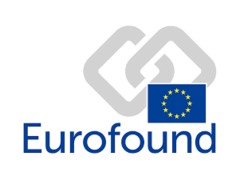European Foundation for the Improvement of Living and Working Conditions
Documents from 01 January 1976 to 17 December 1987Identity Statement
167 files
Musa, Samir
Content and Structure
The Council Resolution of 21 January 1974 concerning a Social Action Programme included the broad objectives of ‘the improvement of living and working conditions so as to make possible their harmonization while the improvement is being maintained’, the ‘increased involvement of management and labour in the economic and social decisions of the Community and of workers in the life of undertakings’, and noted the European Commission’s proposal to set up a European Vocational Training Centre and a European Foundation for the Improvement of Living and Working Conditions. The regulation creating the Foundation was adopted on 26 May 1975 (EEC 1365/75) and the Agency became operational in 1976 with its seat in Dublin (Patrick Hillery, Deputy Head of the European Commission and Social Affairs Commissioner was from new EEC Member Ireland). One of the first decentralised EU Agencies (Cedefop had been established in Berlin the year before) it had a broad remit, being tasked to ‘pursue ideas on the medium and long-term improvement of living and working conditions in the light of practical experience and to identify factors leading to change’. Its activities would include the exchange of information and experience, facilitation of contact between universities and research centres, economic and social administrations and it should encourage concerted action, setting up working groups, concluding study contracts, participating in studies, promoting and providing assistance for pilot projects and carrying out certain studies itself.
Social Partnership was at the heart of the new body, with a governing body representing the Member State Governments and Social Partners as well as the Commission. Early work programmes covered work organisation, shiftwork, psychological and physical stress, health and safety, developing industrial relations, equal opportunities, social cohesion, as well as housing. The Foundation undertook attitudinal surveys, pilot projects and held round table conferences where social actors could meet and exchange information and experience.
There were a number of setbacks in the early years, including tensions with the European Parliament’s Committee for the Environment about the quality and relevance of the early research outputs, and the alleged failure of the Agency to adequately address issues of living conditions as they impacted on working lives (culminating in the EISMA report, 1983). The establishment of the European Environment Agency in 1990 and the Health and Safety Agency in 1994 also posed potential challenges to the role and remit of the Agency. Over time however the Foundation has established a reputation for its European-wide surveys (European Working Conditions Survey (since 1990), European Quality of Life Survey (since 2003) and European Company Survey (since 2004); In 2001 the European Monitoring Centre for Change (EMCC) was set up within Eurofound at the request of the Social Partners, to monitor the drivers of change in European economies and to involve workers in anticipating and managing change. To assist with social dialogue, the Foundation developed European Industrial Relations Glossaries (1991) that provided an overview of the systems in place in each country together with a description of related terms. In 1997 it established the award-winning European Industrial Relations Observatory (EIRO) an online tool combining updates on industrial relations news across the European Union. In 2015 EIRO was combined in a new online portal EurWORK.
Often referred to as the Dublin Foundation, the Foundation, FEACVT, EFILWC and most recently Eurofound.
Conditions of Access and Use
English, French
